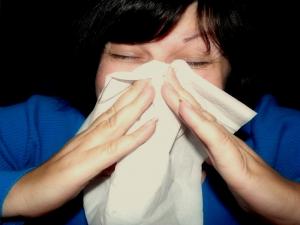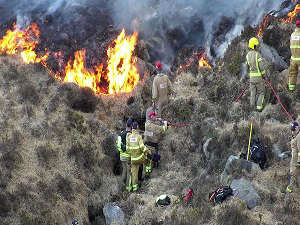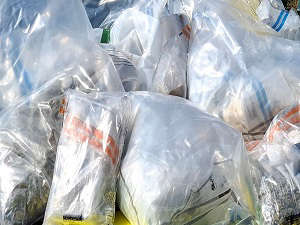
Q Radio News
Several deaths in Northern Ireland are being linked to the current outbreak of flu.
Dr Lucy Jessop's a consultant with the Public Health agency and says the situation is "moderate" not "epidemic".
She says it's often wrongly called "Aussie Flu" - even though it's the same strain we had last year.
Dr Jessop's advice is for people with flu-like symptoms to stay at home - as mild cases can be managed with over the counter remedies.
With flu levels having risen in recent weeks and many of us experiencing coughs and colds, the Public Health Agency (PHA) is offering some simple advice to us get through winter and reminding everyone that hand hygiene and self-care are essential when preventing and managing colds and flu.
Dr Lucy Jessop, Consultant at the PHA, said: “Washing your hands regularly will help prevent flu and other winter viruses spreading.
“If you do become unwell with flu or flu-like symptoms, you should stay at home – most cases of flu are likely to be mild and can be managed at home with over-the-counter remedies.
For most people it will have resolved within a week, if not you should speak to your GP. Those in at-risk groups, may be more susceptible to serious illness and you should contact your GP earlier if you have a high temperature or shortness of breath for advice.
“It is also important to remember that a course of antibiotics won’t sort out your cold or flu.
Cold and flu are viruses and antibiotics are useless against them.
“Viral infections are very common and as well as cold and flu they can include many infections of the nose, sinuses, ears, throat and chest.
Most of these can be self-treated without the need for a visit to the doctor, and with no need for an antibiotic.”
If you do get the cold or flu: Rest up Drink plenty of fluids Blow your nose – catch it, bin it, kill it. Wash hands regularly Clean hard surfaces (such as door handles) frequently using your usual cleaning product.
The first place to go if you’re feeling unwell is the pharmacist, who can usually provide over-the-counter medication to help deal with your symptoms until your illness passes. Dr Jessop added:
“Getting the free flu vaccine is the single most important thing you can do to help protect yourself against flu.
“Everyone who is eligible to be vaccinated against flu should see it as a positive step in protecting their health and the health of others around them.”
The flu vaccination programme is part of the wider ‘Stay Well this Winter’ programme operated by the Public Health Agency and the Health and Social Care Board which enables people to take simple steps during the colder months to look after their health.
Dr Jessop concluded: “Our health service is under tremendous pressure, so by taking steps to help prevent the spread of winter viruses and being sensible in treating them, we can all help reduce the burden on hospitals and our GPs, enabling them to help those who really need medical support.”


 Firefighters tackle wildfire near Glenshane Pass
Firefighters tackle wildfire near Glenshane Pass
 Thousands march to derelict Casement Park to demand its redevelopment
Thousands march to derelict Casement Park to demand its redevelopment
 PPS to consider any basis for appeal against Oliver MacCormack sentence
PPS to consider any basis for appeal against Oliver MacCormack sentence
 Working group to assess impact of trade tariffs on Northern Ireland businesses
Working group to assess impact of trade tariffs on Northern Ireland businesses
 Drugs worth £860,000 seized following search in Kilkeel
Drugs worth £860,000 seized following search in Kilkeel